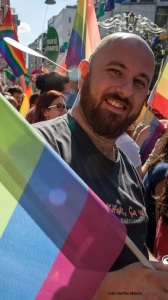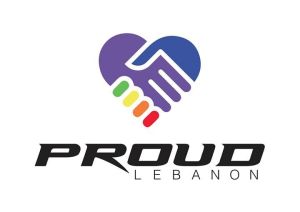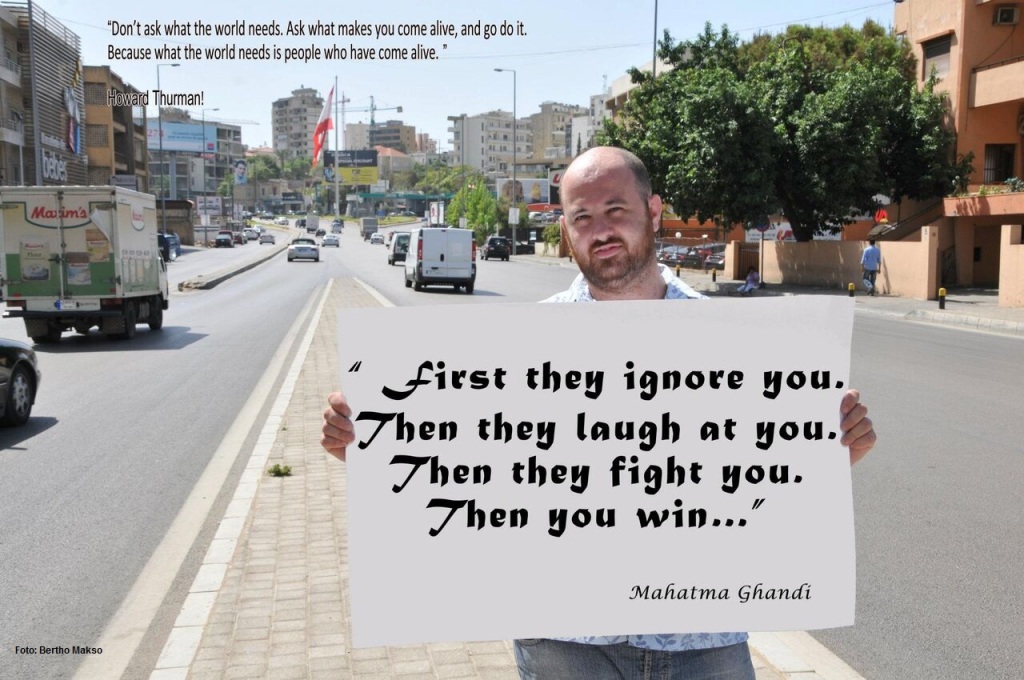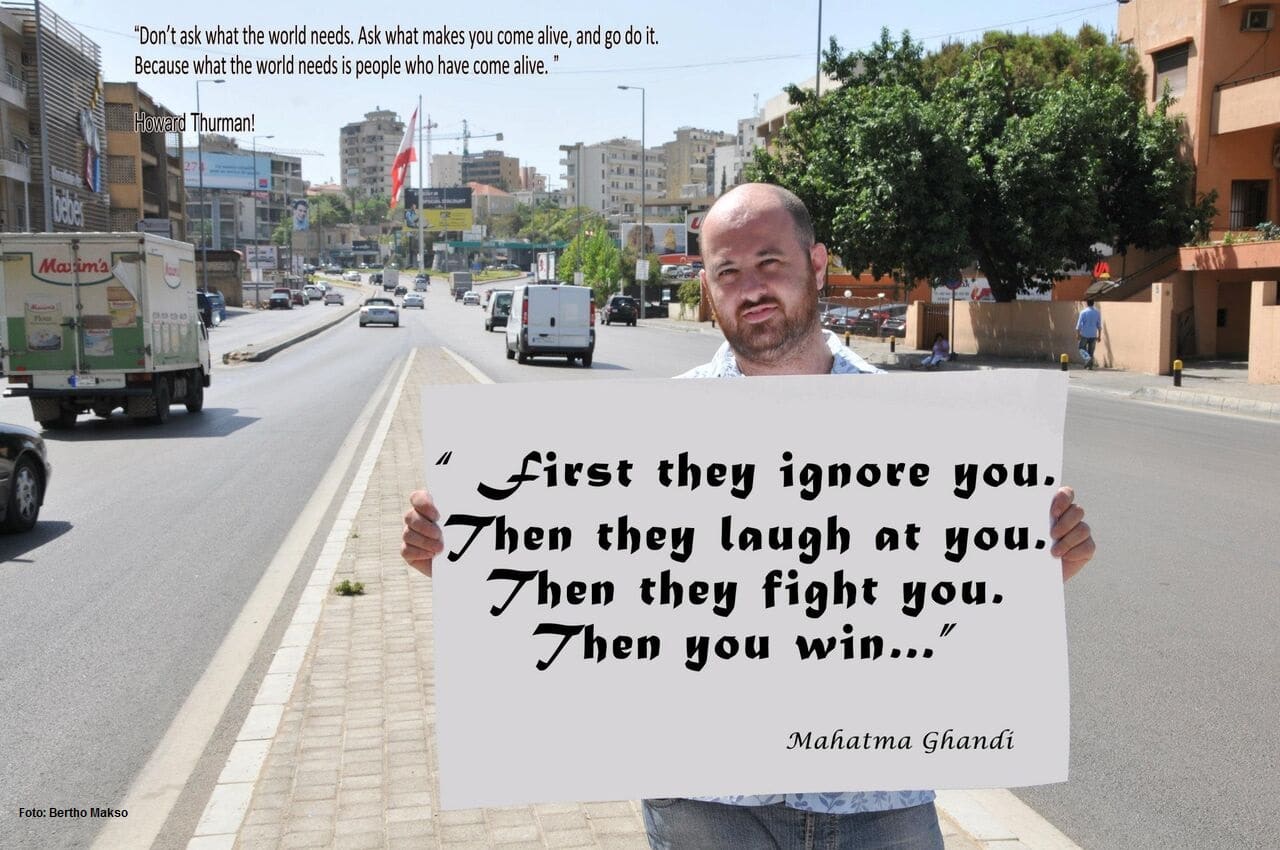Mr Bear contests, party events and trips - for many years, Bertho Makso was one of the most important organisers of gay life in Lebanon. But when the situation for homosexuals in the Middle East deteriorated dramatically, the 33-year-old no longer wanted to remain inactive.
Bomb attacks, war, streams of refugees - these are almost always less than pleasant topics when our media report on Lebanon. Perhaps in 2010 "Spiegel Online" This is one of the reasons why we are so enthusiastic about publishing a photo series from an event that doesn't fit our image of Lebanon at all: Pictures from the Mr Bear Arabia Contest in Beirut. The fact that there could be a lively gay scene in Lebanon, while in neighbouring countries homosexuals are threatened with the death penalty and the terrorist organisation Islamic State murders gays, is hardly imaginable for many in the Western world.
But they actually exist. "Compared to the rest of the Arab world, there is a kind of liberalism here that allows some freedoms," explains Bertho Makso, who organised the Bear Contest. "Beirut is a schizophrenic city. In fact, it's many cities in one. There are neighbourhoods with rich people who live a life like in Berlin or Paris and others where there is extreme poverty. We have a gay sauna, there are lots of bars and clubs, but at the same time men are arrested for being homosexual and detained for longer than would actually be legally permitted - without being charged."
Officially, homosexuality is not illegal in Lebanon. However, Section 534 punishes "unnatural sexual behaviour" with imprisonment of up to one year. The text of the law does not explain what this means. In other words, a rubber paragraph and therefore a free licence for police arbitrariness. "There are efforts from many sides to reform the law, but nothing has changed in the actual situation, if at all for the worse," says 33-year-old Bertho. And yet there have recently been two hopeful signs from the highest courts. Courts have ruled that neither homosexuality nor transsexuality are automatically considered unnatural. Have these judgements made it easier for gays, lesbians and trans people to come out? Bertho laughs. "Nobody comes out voluntarily. And those who do anyway must expect to be rejected and ostracised". Bertho gives concrete examples of this and tells of gay people who were thrown out of the house by their parents because of their homosexuality and are now literally living on the streets or have lost their jobs.

"There are people in the country who are known to be gay, but they would never admit it publicly," says Bertho. As a result, there are neither role models nor positive role models for gays in the country. A Klaus Wowereit or a Thomas Hitzelsperger - currently unimaginable in Lebanon.
To change this - at least in the long term - Bertho Proud Lebanon was brought into being. On the one hand, its organisation specifically looks after the interests of gays, lesbians and trans people and offers legal and health advice, HIV and STI tests, among other things. Proud Lebanon also tries to have a direct impact on society, for example by organising seminars to sensitise journalists to the issue of homosexuality. Bertho and his team scored a major coup on the International Day of Homophobia (IDAHOT). National personalities were invited to a high-profile event and a video film, and all three of the country's major television stations reported on the event in their news programmes.
The message of their poster as well as the video clip (which is also available with German subtitles) is, loosely translated, "We are not sick". In their campaign, gays and lesbians are placed alongside other population groups that are talked about disparagingly in public: Overweight people, people of small stature and the elderly, or even rockers and the disabled.
The fact that this work can be done at all is due to the fact that Proud Lebanon is officially and state-recognised as a non-governmental organisation (NGO). So a sign of progress in terms of gay rights after all? It has been a long struggle up to this point, explains Bertho. But he doesn't want to call it a victory.
On the one hand, there has been a bit of trickery or clever wording. Officially, Proud Lebanon is a non-profit organisation that works to protect the human rights of marginalised groups in society. The fact that this also, or primarily, refers to LGBT people was not explicitly mentioned when the application was submitted.
"Recognition is an important success on the one hand, but also a risk," says Bertho. Because now the government, judiciary and police know where to find us and what we are doing." The fear that the situation for LGBT people in Lebanon could deteriorate dramatically within a very short space of time is justified.
The NGO status enables Proud Lebanon to apply for funding abroad. With funding from the European Democracy Fund, office space could be rented, renovated and equipped and the salaries of the six permanent employees could be financed for two years.

The diverse work of Proud Lebanon would be impossible to manage otherwise. In order to be able to devote himself fully to building up the organisation, Bertho has not only put the organisation of the Mr Bear contest on hold, but also his travel company, which was even worth a detailed report in the Wall Street Journal. For many years, the tourism manager had successfully organised trips for gays in the Middle East - including to neighbouring countries such as Syria. From today's perspective, this may sound almost unbelievable. But not so long ago there was a very lively queer scene there too, reports Bertho: "It was no problem at all to go out there and meet someone". Until the war came. Today, gays in Syria have to fear being arrested by IS. A proper secret language based on Arabic had made it possible for gays in the region to talk in public without others being able to follow the content of the conversation. Even he, who had many close contacts in Syria, found this difficult, says Bertho. Syllables were omitted, others added and new words incorporated into the vocabulary. The process was particularly tricky. For example, the Syrian gays use the French word for "hole" (trou) in their special version of Arabic - but for them it means "cock". Anyone who happens to overhear a conversation will hardly be able to understand the meaning. This secret language was a good defence for a long time. But that is now a thing of the past. The Syrian secret police forced these codes out of them while they were being tortured. To the horror of recently arrested gays, they were now interrogated by police officers who already had a perfect command of the language. A smartphone confiscated during a raid or street check can already be a risk.
If, for example, nude photos or connection data to online dating portals such as GrindR are found there, this can mean a death sentence. Recently, there have been an increasing number of reports from Syria about stonings and other gruesome executions. Those who can, those who have the courage, flee and venture into the unknown. Many of Bertho's Syrian friends are thus stranded in Beirut, in some cases severely damaged physically and mentally by imprisonment and torture, and are in urgent need of help. The number of LGBT refugees from Syria, but also from other neighbouring countries where homosexuals face repression and even the death penalty, such as Jordan, Iraq and Palestine, is constantly growing. Being able to offer them at least some organised support and a place to go was an important reason for Bertho to set up Proud Lebanon.

Bertho founded "Proud Lebanon". His organisation looks after the interests of gays, lesbians and trans people and offers legal and health advice, HIV and STI tests, among other things.
Another article will be dedicated to the situation of LGBT refugees and the precarious health situation of gay men in Lebanon in a few days' time.
Proud Lebanon is currently looking after several hundred queer refugees in Beirut. The available financial and human resources are no longer sufficient. Donations are therefore urgently needed. A crowdfunding platform has been set up for this purpose. https://life.indiegogo.com/fundraisers/1313819
Even small amounts help!










